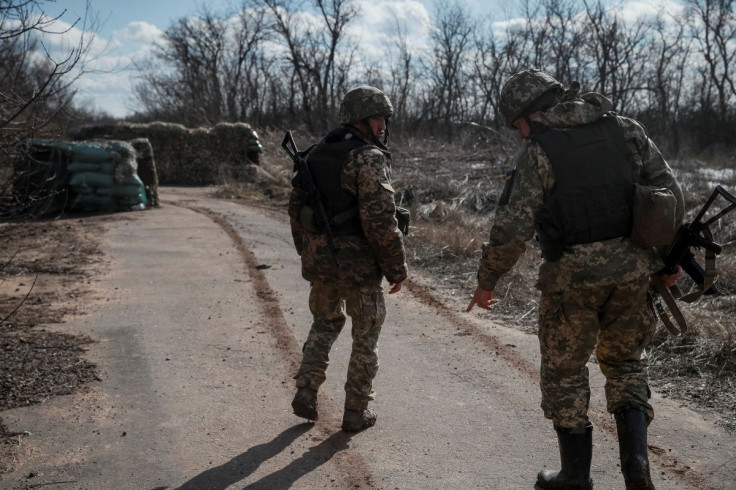Putin Set To Recognise Ukraine Rebel Regions

Russian President Vladimir Putin will shortly sign a decree recognising two breakaway regions in eastern Ukraine as independent entities, the Kremlin said, upping the ante in a crisis the West fears could erupt into war.
Putin announced his decision in phone calls to the leaders of Germany and France, who voiced disappointment, the Kremlin said.
Moscow's move could torpedo a last-minute bid for a summit with U.S. President Joe Biden to prevent Russia from invading Ukraine, and the rouble extended its losses as Putin spoke on the issue, falling 3.3% on the day to 79.83 per dollar.
Putin later began a long televised address, in which he was expected to make the announcement, by delving into history as far back as the Ottoman empire and as recent as the tensions over NATO's eastward expansion - a key irritant for Moscow in the present crisis.
He described Ukraine as an integral part of Russia's past without a tradition of genuine statehood of its own. He said the east of the country covered ancient Russian lands.
"If Ukraine was to join NATO it would serve as a direct threat to the security of Russia," he said.
Putin has for years worked to restore Russia's influence over nations that emerged after the collapse of the Soviet Union, with Ukraine holding an important place in his ambitions.
Russia denies any plan to attack its neighbour, but it has threatened unspecified "military-technical" action unless it receives sweeping security guarantees, including a promise that Ukraine will never join NATO.
Recognition of the rebel-held areas could pave the way for Moscow to send military forces into the two separatist regions - Donetsk and Luhansk - openly and argue that it is intervening as an ally to protect them against Ukraine.
A Russian parliament member and former Donetsk political leader, Alexander Borodai, has said that the separatists would then look to Russia to help them wrest control of the parts of the two regions that are still under the sway of Ukrainian forces.
The European Union warned of sanctions from the 27-nation bloc should Moscow annex or recognise the breakaway regions in the east of Ukraine and largely controlled by Russia-backed separatists.
"If there is annexation, there will be sanctions, and if there is recognition, I will put the sanctions on the table and the ministers will decide," the EU's foreign policy chief Josep Borrell said after a meeting of the bloc's foreign ministers.
Earlier this week, U.S. and European officials said the U.S and allies were not totally in agreement about how to respond in case of stepped-up support for pro-Russian separatists.
It will also narrow the diplomatic options to avoid war, since it is an explicit rejection of a seven-year-old ceasefire mediated by France and Germany, touted as the framework for future negotiations on the wider crisis.
Separately, Moscow said Ukrainian military saboteurs had tried to enter Russian territory in armed vehicles leading to five deaths, an accusation dismissed as "fake news" by Kyiv.
Both developments fit a pattern repeatedly predicted by Western governments, who accuse Russia of preparing to fabricate a pretext to invade by blaming Kyiv for attacks and relying on pleas for help from separatist proxies.
Hours earlier, French President Emmanuel Macron gave hope of a diplomatic solution, saying Putin and Biden had agreed in principle to meet.
But the Kremlin said there were no specific plans for a summit. The White House said Biden had accepted the meeting "in principle" but only "if an invasion hasn't happened".
In Washington, President Joe Biden summoned his top security advisers. Secretary of State Antony Blinken, Defense Secretary Lloyd Austin and General Mark Milley, chairman of the U.S. Joint Chiefs of Staff, could be seen entering the White House on the President's Day holiday.
Washington says Russia has massed a force numbering 169,000-190,000 troops in the region, including the rebels in the breakaway regions, and could invade within days.
European financial markets tumbled at the signs of increased confrontation, after having briefly edged higher on the glimmer of hope that a summit might offer a path out of Europe's biggest military crisis in decades. The price of oil - Russia's main export - rose, while Russian shares and the rouble plunged. [MKTS/GLOB] [RU/RUB] [O/R]
© Copyright Thomson Reuters 2024. All rights reserved.







